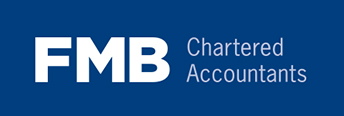The average premium paid by consumers for motor insurance in Ireland last year rose 2% to €568, the first increase in five years.
It comes as the cost of a claim per policy rose by 5% in 2023 to €369, bringing it back near pre-Covid levels in 2019.
Of that figure, the cost per policy of damage claims climbed to €178 as a result of the increased average cost and frequency of damage claims.
While injury claims stood at €191 per policy, lower than pre-pandemic levels.
The data is contained in the sixth annual private motor insurance report from the National Claims Information Database.
“Claims costs have increased, returning to pre-Covid levels and we note a change in the composition of claims,” said Robert Kelly, Director of Economics and Statistics at the Central Bank of Ireland.
“The frequency and costs of damage claims have increased, while the frequency and costs of injury claims have decreased.”
“Overall in 2023 we see an increase in claims costs as a percentage of premiums.”
In total motor insurers in Ireland saw total gross earned premiums hit €1.29bn in 2023, almost the same as the year before.
From that, insurers made combined operating profits of €105m, down from €159 in 2022.
That profit represented 8% of total income for the sector, compared to 12% in the previous year.
“The market was profitable in 2023 with insurers operating profit being 8% of total income,” Mr Kelly said.
“The enhanced data collected for this report allows us to see that an operating loss of 1% on current year claims was offset by reserve releases on prior years which contributed 9% to the operating profit.”
The lower profits were in part due to the total cost of settled claims hitting €693m, the highest level since the Central Bank began recording the data in 2015.
The total cost of settled damage claims was 118% higher than the 2015 to 2019 average, while the number of settled damage claims was 24% higher.
However, the total cost of settled injury claims were 25% lower than the 2015 to 2019 average, although this in turn was up by nearly a quarter on 2022, which had the lowest total cost of settled injury claims since 2015.
The report shows that 45% of injury claims were settled directly with an insurer, with 1.9 years being the average time taken to settle.
A further 17% settled through the Injuries Resolution Board where the average time taken to settle was 2.7 years.
The remaining 37% settled through litigation, where the average time duration to settlement was 5.1 years.
Of those, just over a quarter that settled in the second half of last year did so under the new personal injury guidelines, with the balance using the old Book of Quantum.
The average cost of claims that settled using the personal injury guidelines was more than a third lower for claims settled before the Injuries Board, 22% lower for those settled at the board, and 39% lower for claims settling straight after the board, when compared to settlements made in 2020 under the Book of Quantum.
“We note that the application of the Personal Injuries Guidelines continued to progress in 2023 with all claims in the Direct and Injuries Resolution Board channels along with 23% of litigated claims settling under the guidelines,” said Mr Kelly.
“Significant reductions in average claim costs are seen in the Direct and Injuries Resolution Board channels.”
“It is still not possible to determine the full impact of the Guidelines on claims settling through litigation.”
“This is important to note as 76% of all injury costs were associated with litigated claims. However, the report details decreases in the average compensation costs for the 84% of claimants whose claims settled for less than €100K in the litigated channel.”
Insurance Ireland said the rise in average premiums last year came against a backdrop of inflation in the rest of the economy where the average figure for inflation was 6.3%.
It said this demonstrated the Government’s reform agenda and insurers have insulated consumers.
The organisation added that the trend of a significant increase in damage claims costs continued and the use of litigation to settle personal injury claims continues to erode the impact of reforms.
“Today’s figures published by the Central Bank reaffirm that insurers followed through on their commitment to pass on the benefits of Personal Injuries Guidelines and other reforms to consumers,” said Moyagh Murdock, chief executive of Insurance Ireland.
“Although premiums have begun to increase, reflecting the increased cost environment, Irish motor insurance customers have benefitted from significant decreases from 2017 to 2022, where premiums decreased by 23%.”
“This demonstrates that consumers have been cushioned from the impact of the significant cost inflation of the last couple of years.”
The Alliance for Insurance Reform said the increase in average premiums of 2% last year was probably the start of worse to come.
“This is likely the thin end of the wedge as recent CSO figures showed the cost of motor insurance was up by 10.3% in the year to September,” said CEO of the Alliance, Brian Hanley.
“Premiums had come down in recent years thanks to the Government’s programme of reform and greater competition. Whilst inflation has undoubtedly contributed to the increased cost of vehicle repairs it has begun to stabilise now, and we need this to quickly result in premium stability for policy holders too.”
Speaking on RTÉ’s Morning Ireland, he also said it was very positive to see larger number of insurance cases being settled via litigation using the Injuries Resolution Board guidelines with up to 20% of claims settled that way last year.
Article Source – Motor insurance premiums rose 2% last year – Central Bank – RTE






